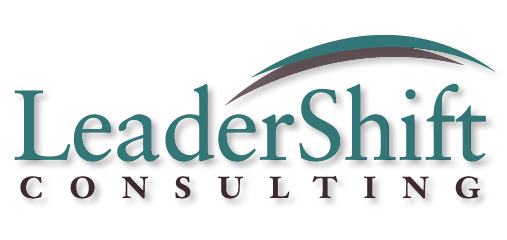Can You Lead Confidently When You Don’t Know It All?
“When do you feel confident as a leader?” This is a question I often ask my female coaching clients, because so many of them struggle with self-confidence. Almost without exception, their reply is, “I feel confident when I ‘know my stuff’ inside and out.” Knowledge is a definite inner authority-booster. But when it’s your primary source of trust in your leadership abilities, you’re in a precarious position, because it means that you’re only self-assured when a) all things are knowable and b) you have the time and ability to know them all.
Good luck with that.
What happens when you’re facing things you’ve never faced before, like a natural disaster or 9/11? Or when the market crashes and you have to get twice as much work out of half as many people? Or when a technological breakthrough in your industry renders your core product obsolete overnight? Do your people then have to wait for you to get up to speed again before they have the benefit of a confident leader?
In the face of unprecedented and unknowable challenges, a leader needs to ground her own authority in more than just knowledge. Here are three other places to look:
1. Principle
One place to find your leadership footing when the path is uncertain is in principles and values. You may not know exactly how to proceed, but you can probably identify what matters. There’s power, clarity and confidence in that. Here’s an example. During the 2013 shut-down of the US Federal Government, many companies that consult to the government were forced to lay off workers for days or even weeks. But the leaders of one consulting firm were uncomfortable making their employees bear the financial penalty for Congress’ failures. So they asked themselves this question: “What values do we want to guide our response to this situation?” Their answer: people are more important than profits. Having articulated that principle, the way became clear: they forewent their own bonuses and asked all employees to take a specific day as vacation, so that the company could shut down its facilities and save a day’s worth of energy costs. Not one employee lost even a day’s pay. Connecting to what mattered most allowed this company’s leaders to stand confidently for a position that was costly to them personally and controversial among their external stakeholders.
2. Presence
A client of mine (we’ll call her Deb) was recently leading a team that was on the brink of a disastrous work deliverable. Despite the team’s best efforts, they approached their deadline woefully unprepared, plagued by in-fighting, and scared to death of tanking an important presentation. Deb had to decide whether to back out of the presentation or go forward. Both options presented significant risk. So when she decided to go forward, she realized that she had to do it with full conviction. First, she gathered her own energy into a clear and focused commitment. Then, standing in her own resolve, she pulled the team together to acknowledge their hard work, assess both the failure and success scenarios, and reassure the team that she would have their backs, regardless of the outcome. The solid certainty of her own presence created a psychological sea-change in the group. Feeling their leader so strongly at their back emboldened them in the presentation. They aced it. And Deb learned an important lesson: that presence itself could have a huge impact on the performance of her team.
3. Personhood
When you’re out of your depth, it’s easy to imagine that somewhere out there, there’s some mythical “perfect” leader for this situation… and it isn’t you. But here’s the thing. The perfect leader isn’t here; you are. So show up. Lead with what you’ve got, whether that’s the ability to lend perspective, to keep calm, to energize, to empathize, to engender trust, to problem-solve, to facilitate, to leverage the right people, to protect and advocate. When you’re out of your knowledge depth, bring everything else you’ve got – because your folks need a leader and you’re the one who’s here. And you, in all your imperfection, may turn out to be exactly what the situation called for after all.
————————————-
Knowing your stuff is a great thing, and it certainly contributes to your credibility as a leader. But when you rest your confidence solely on what you know, then it’s contingent on conditions and you’re missing out on many other sources of authority and impact.
What about you?
- On what internal standards or criteria do you base your own confidence as a leader?
- What happens to your confidence as a leader when you can’t meet those standards?
- What price do you pay for that loss of confidence? What’s the cost to your team and your organization?
- How might you leverage principle, presence or personhood in a fuller way to support your confidence as a leader?
- What specific steps might you take to do that?
